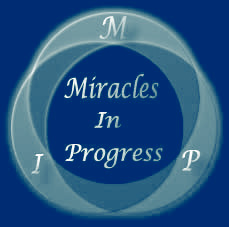
About Me

- An Irish Friend of Bill
- I have recovered from the disease of Alcoholism. I believe there is only one person really,.. everybody. And that peace of mind is everything. -So treat your neighbor as you would treat yourself, because your neighbor IS yourself. I think most of recovery is what I would call common sense, but that learning to be ordinary is a true gift very few people acquire. My ambition is to accept everything unflinchingly, with compassion, and therefore be intrinsically comfortable in my own skin, no matter what. I am comfortable being uncomfortable and am willing to go to any lengths to improve my life. I believe the Big Book was divinely inspired, and is extraordinarily powerful. Unfortunately AA's best kept secret a lot of the time. (In my opinion). I just try to do what works, no matter what it is.
Monday, November 16, 2009
I find that Senior Step 11 practitioners seem to mirror exactly what it says in the Big Book
I thought I would share with you my most recent inspiration. I manage to find a new one fairly regularly these days. I found this video on the Internet, whilst looking for something else, and I really liked the way she spoke to the group. I suppose if you have experienced bossy women this might not seem so appealing, but I particularly liked her no fuss approach.
At about 27 minutes in, she describes how you don't need to give up all your worldly possessions and live a simple life in order to be a 'spiritual' person. This is in response to a question by a man in the audience who says "if people places and things cannot make people happy, then what is the point of trying to acquire them?" Her response is that you can have your cake and eat it. Meaning it's not the people places and things that you have to get rid of, but your attitude towards the people places and things that is the problem. This reminds me of the phrase used to describe AA which is altered attitudes.
The next question at about 28 minutes in is about how to tell the difference between the unavoidable pain of real suffering and the avoidable pain of real suffering. She describes how she witnessed the Dalai Lama weep upon talking about his deceased mother, but that it was the expectation that the person place or thing would remain indefinitely that was the source of the problem, not the loss of the cherished people, place or thing in itself.
This is the same way that I was taught to analyse resentments in step four. If I felt aggrieved because a person place or thing had not done what I thought it ought to have done. - Such as a friend rejecting me, losing your job and not getting what I wanted basically. My step four consisted of three columns, and in my third column this type of resentment would have included self-centredness. Wanting things to go "my Way".
My analysis of this type of resentment was that there was an expectation that things would go my way, and this led to huge disappointment when things rarely did. - Because everything is completely beyond my control, people places and things cannot be relied upon to give me what I think I need. They will continue to live according to their own will, and to the extent that I am self-centred in my attitude towards people places and things (whom I have no control over), is the extent to which I will be frustrated and disappointed and aggrieved at the outcome, as it can only ever do what it was going to do anyway, regardless of what I think I want them to do.
In another question she talks about the difference between self-centred and a self forgetting attitude in response to difficult circumstances. In AA we hear the slogan that we ought to treat every problem as an opportunity to demonstrate God's will in all our activities.
Her way of describing the distinction is, you either think "what a terrible person that is, how dare they do that", or else you stop and ask yourself "What can I do about that?" which I interpret as being the same question as "how can I help?", or "how can I be of service in this situation?"
In AA we are told that helping others is the foundation of our recovery, and that we are no longer be running the show, and that in response to difficult circumstances we are to say to ourselves "this is a sick man, how my May I be helpful?" This seems to exactly mirror her response here.
So basically I found many parallels between what AA tells us we should do, and her very authoritative and thorough experience about how she is able to be ‘happy joyous and free’ under all circumstances. I'm always very inspired when I see parallels between senior spiritual practitioners and the things I have learned in AA. This has happened many, many times. I have lost count of how often I hear basic AA suggestions from very senior step 11 practitioners. The more step 11 I do the more I have learned to appreciate what AA taught me, because it has shown me how rarefied and impressive the tenets of AA are.
There is a lot more in the talk that I am not going to go into more detail, as this post will just get too long. No change there!
Anyway I'm going to head off to the gym now, because I have a busy day and I need to stay comfortable and not get stressed out by many things I have to do.
So I hope you all have a lovely Monday and I'm sure I will be reading your blogs in the near future :)
Subscribe to:
Comments (Atom)
